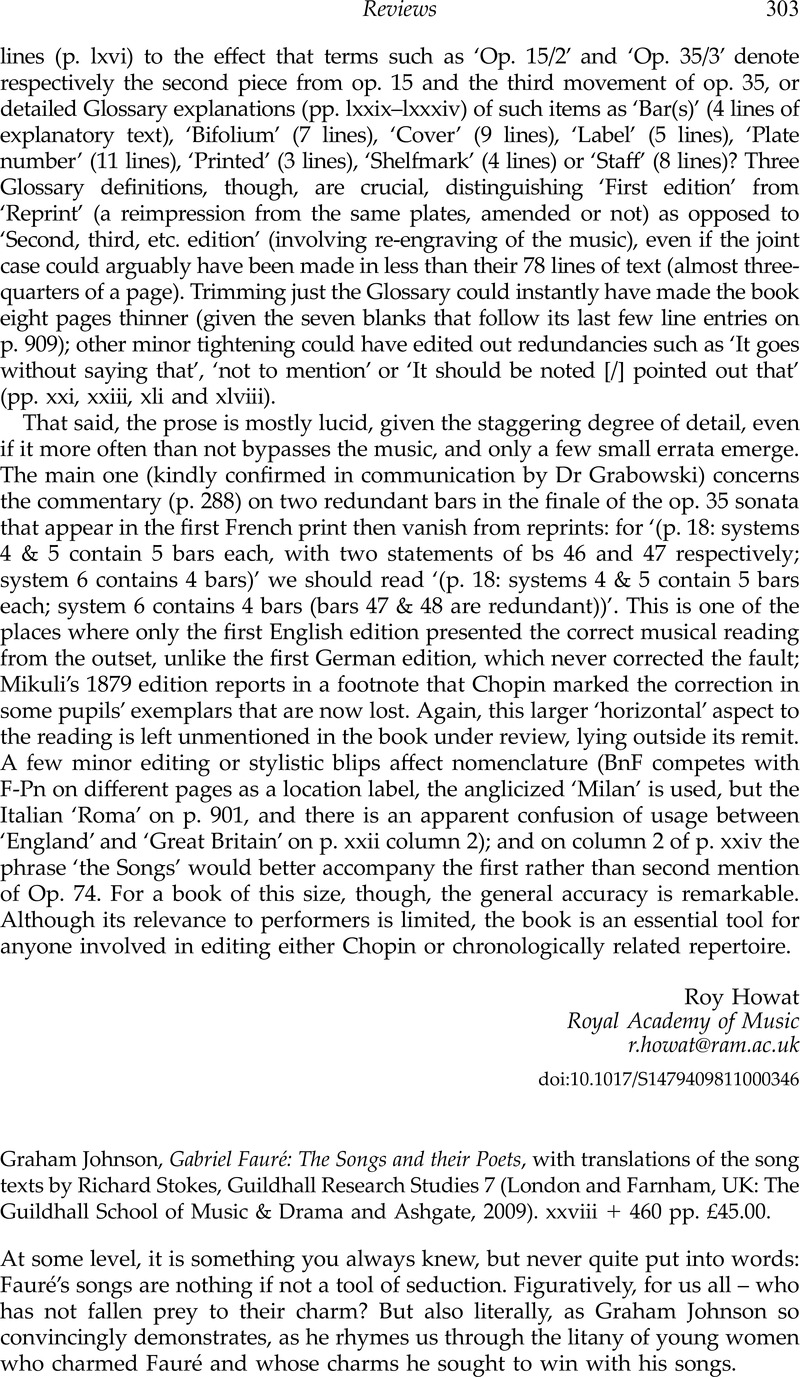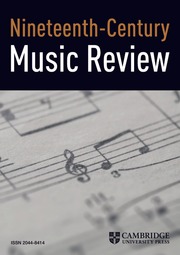No CrossRef data available.
Article contents
Graham Johnson, Gabriel Fauré: The Songs and their Poets, with translations of the song texts by Richard Stokes, Guildhall Research Studies 7 (London and Farnham, UK: The Guildhall School of Music & Drama and Ashgate, 2009). xxviii + 460 pp. £45.00.
Review products
Published online by Cambridge University Press: 24 November 2011
Abstract

- Type
- Book Reviews
- Information
- Nineteenth-Century Music Review , Volume 8 , Issue 2: Mahler: Centenary Commentaries on Musical Meaning , 24 November 2011 , pp. 303 - 308
- Copyright
- Copyright © Cambridge University Press 2011
References
1 See: Vladimir Jankélévitch, Fauré et l'inexprimable (Paris: Plon, 1974)Google Scholar, Jean-Michel Nectoux, Gabriel Fauré: A Musical Life, trans. Roger Nichols (Cambridge: Cambridge University Press, 1991)Google Scholar, Caballero, Carlo, Fauré and French Musical Aesthetics (Cambridge: Cambridge University Press, 2001)Google Scholar.
2 The usefulness of having a single source of translations into English of all of the texts to Fauré's songs is indisputable, and Richard Stokes’ translations are integral to Johnson's discussions of each song. However, the translations themselves are marked by some unevenness in quality and a lack of consistent tone and purpose. While many are quite serviceable, others are somewhat over-the-top; for example, the translation of the words ‘je reste’ in ‘Le Papillon et la fleur’ as ‘fixed to earth am I’. While suffusing the translation with pre-Parnassian excess may have some justification, the translation is not really faithful to the original.
3 Actually a double list, since Johnson passes chronologically through the repertoire twice, once in the main body of the text and a second time with a discussion, aimed principally at pianists, of ideal tempi and other performance indications in Chapter 16.


